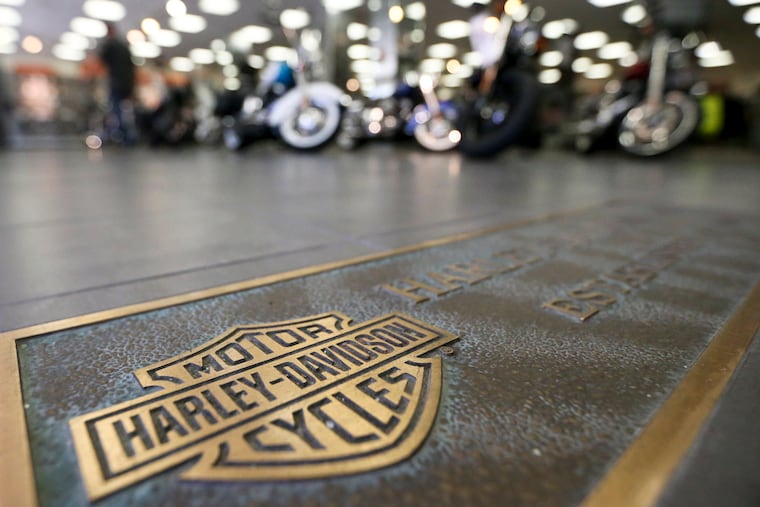Harley-Davidson could be first of many U.S. firms to shift production overseas
More companies will follow Harley-Davidson's lead and move production to other countries to avoid higher tariffs, and President Trump will continue to call out the ones that do so, analysts said.

Expect more Harley-Davidsons.
Other U.S.-based companies are going to go overseas as a result of escalating trade disputes with other countries, and more companies are going to take abuse from President Trump on Twitter for doing so, analysts said Tuesday.
"The president's trade policies hit Harley-Davidson two ways," by raising the price of steel and inviting new tariffs, said Philip Levy, an adjunct professor of strategy at Kellogg School of Management at Northwestern University. That combination makes the U.S. "look relatively less attractive as a place to produce," said Levy, who expects more companies to move production overseas.
The U.S.-based motorcycle manufacturing company, announced in an SEC filing Monday that it will shift some of its production to international locations because of tariffs that the European Union placed on the company's products.
The company didn't disclose any specifics of where production could be shifted or how it could affect U.S. plants. Harley has a plant in York, Pa., and operations elsewhere in the United States, and has foreign plants, including in Brazil, India, and Thailand, but not in Europe.
Harley-Davidson said the EU's tariffs on its motorcycles jumped from 6 percent to 31 percent, raising the average cost of a "hog" exported to Europe by about $2,200. The EU is the largest market for Harley after the United States, so the production relocation is part of an effort to avoid the higher tariff without substantially raising costs for consumers, the company said in the filing.
Harley-Davidson is hardly the only company doing this. There are more companies in the U.S. that use steel rather than produce it, Levy said, which means these businesses will look for other ways to reduce production costs — including relocating production.
Levy said Trump's reaction to Harley-Davidson's announcement suggests that he has faith in his negotiating ability, but Levy sees "essentially no evidence that the president's strategies are going to pay off" in the form of tariff-free access to Europe.
Trump tweeted Tuesday morning that "employees and customers are already very angry" at the company for surrendering to higher tariffs and promised that the company would be "taxed like never before." His criticism of Harley-Davidson marked a change in his relationship with the company after he welcomed Harley-Davidson representatives to the White House in 2017.
Timothy Calkins, a professor of marketing at the Kellogg School, said this is an example of why a company has to be prepared to respond if the president attacks on Twitter.
"Every once in a while, a company will receive a lot of attention from Donald Trump, and when it happens it is very difficult for a company to manage," he said.
Apple, he said, outsources production to Asia, but its products are designed in California, enabling the firm to emphasize its American roots.
Harley-Davidson is an "iconic American brand," Calkins said, but it now needs to balance its image as a U.S. brand with its need to produce in other countries to remain afloat. The company's popularity has been falling in recent years, with 2017 marking its fourth-straight year of declining sales.
Calkins said the company had thought about transferring some production overseas in the past, but the higher tariffs "increase the urgency quite significantly."
"Harley-Davidson has been struggling for several years," he said. "And in particular, it's been struggling in the U.S. market. That makes it more important for Harley to build its international business."